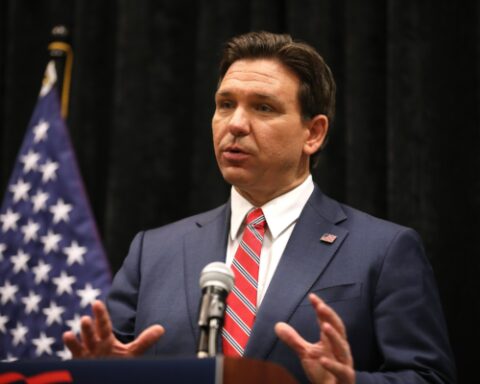A simmering clash over immigration enforcement reportedly escalated this week as the administration of Florida Governor Ron DeSantis moved to penalize local officials in Key West after the city voted to terminate its cooperation agreement with federal immigration authorities.
The Key West City Commission voted 5–1 on Tuesday to withdraw from a controversial program that allows local police to collaborate with Immigration and Customs Enforcement (ICE).
Known as the 287(g) agreement, the policy has faced mounting scrutiny from residents who argue it fosters fear among immigrant communities and undermines trust in law enforcement.
Florida Attorney General James Uthmeier quickly condemned the city’s decision, warning officials that failure to comply with a state law barring “sanctuary cities” could result in severe consequences—including criminal prosecution and removal from office.
Governor DeSantis echoed the warning, stating that “local governments have to abide by Florida law,” and suggested that state authorities have the tools necessary to ensure compliance.
The sharp response follows a series of immigration crackdowns by the DeSantis administration, which has championed a hardline approach to enforcement.
State law now mandates cooperation with federal immigration agencies, and the governor has made the expansion of ICE partnerships a signature plank of his immigration policy.
Key West leaders defended their decision as a principled stand reflecting the island’s values of tolerance and community protection.
The vote came in the wake of public uproar over the recent arrest and detention of a local resident—an undocumented hair stylist—after a traffic stop escalated into an ICE handover.
Residents packed city hall to demand change, voicing fears of racial profiling and community disruption.
The city’s withdrawal from the 287(g) agreement places it at the center of a growing legal and political battle over the scope of state authority and local autonomy.
Several other Florida municipalities, under similar pressure, have opted to maintain ICE partnerships to avoid state intervention. Key West’s defiance marks a rare challenge to the administration’s sweeping enforcement agenda.
Legal experts anticipate a high-stakes confrontation that could end up in the courts.
While the state insists the city is violating binding law, Key West commissioners argue they are exercising their constitutional right to determine local policing priorities.
For now, the city stands firm—bracing for a legal fight that could reshape the boundaries of immigration enforcement in Florida.
[READ MORE: Fox News Host Demands White House ‘Send a Message’ After CNN Issues Bizarre Threat]








